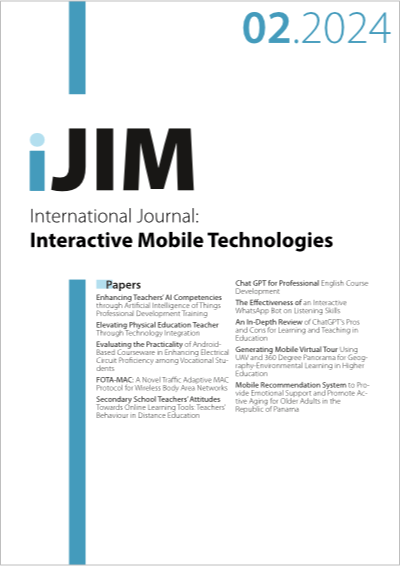An In-Depth Review of ChatGPT’s Pros and Cons for Learning and Teaching in Education
DOI:
https://doi.org/10.3991/ijim.v18i02.46509Keywords:
ChatGPT, artificial intelligence, genAI, educational technology, mobile appsAbstract
As technology progresses, there has been an increasing interest in using Chatbot GPT (Generative Pre-trained Transformer) in education. Chatbot GPT, or ChatGPT, gained one million users within the first week of launching in November 2022 and had amassed over 100 million active users by February 2023. This type of artificial intelligence uses natural language processing to convert it into a user. This paper presents a comprehensive analysis and review of 34 articles published on ChatGPT and its potential impact on education by utilizing the PRISMA (Preferred Reporting Items for Systematic Reviews and Meta-Analyses) methodology. This review analyzed various studies and articles to examine the strengths and limitations of GPT language models in education from 2018 to the present. The advantages of ChatGPT include its capacity to provide personalized and adaptive learning, instant feedback, and improved accessibility. However, there are potential drawbacks, such as the lack of emotional intelligence, the risk of overreliance on technology, and privacy concerns. This review suggests that ChatGPT has significant promise for education yet reinforces the necessity for further research and careful consideration of possible risks and limitations. Specifically, it pointed out potential invisible manipulations by instructing ChatGPT to answer educationrelated topics. The paper concludes by discussing the implications of ChatGPT for the future of education and emphasizing the need for further research in this field.
Downloads
Published
How to Cite
Issue
Section
License
Copyright (c) 2023 Agariadne Dwinggo Samala, Ljubisa Bojic, Xiaoming Zhai, Kumiko Aoki, Simona Zikic

This work is licensed under a Creative Commons Attribution 4.0 International License.



